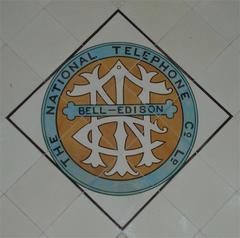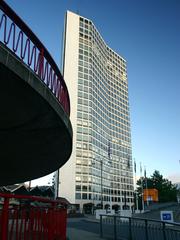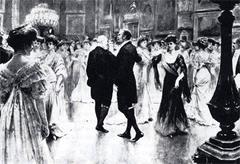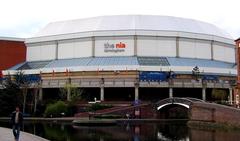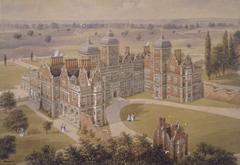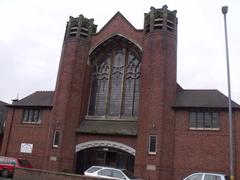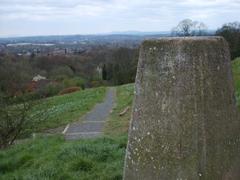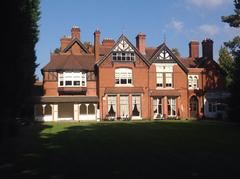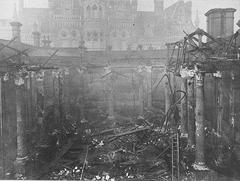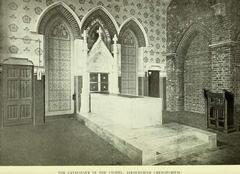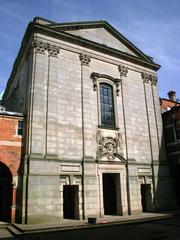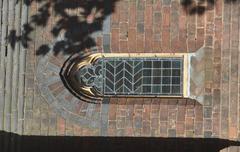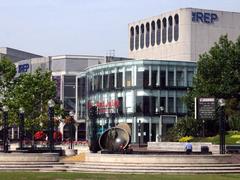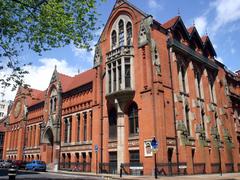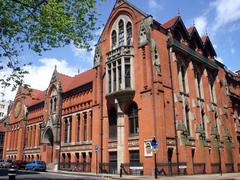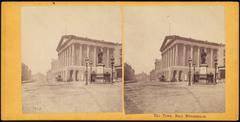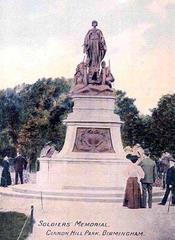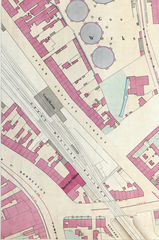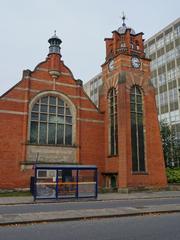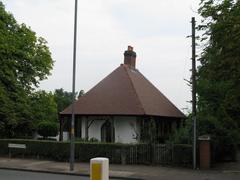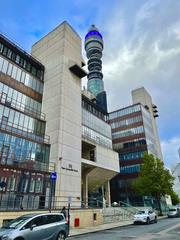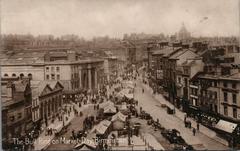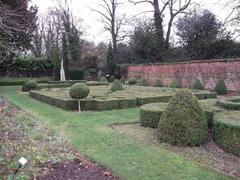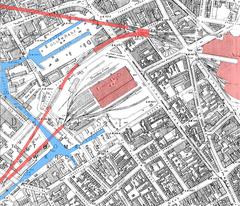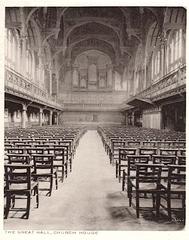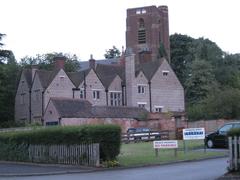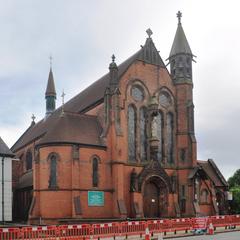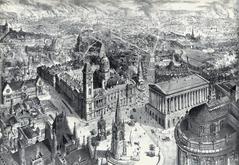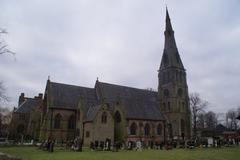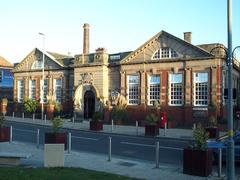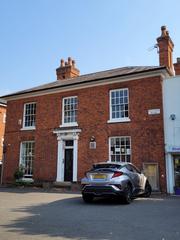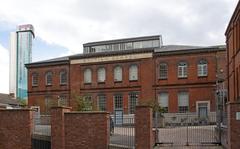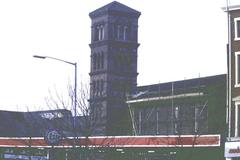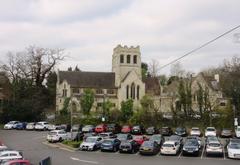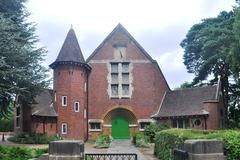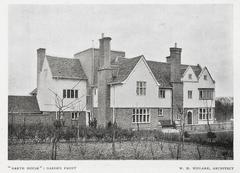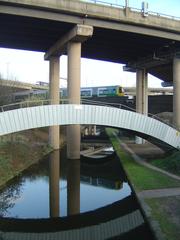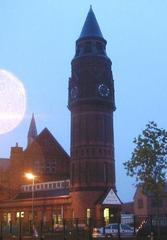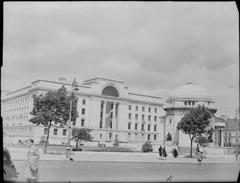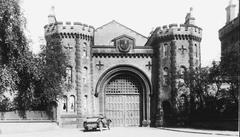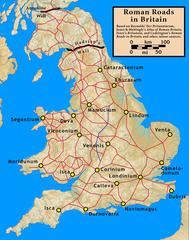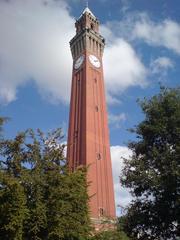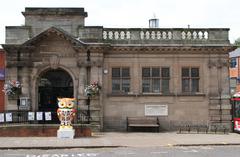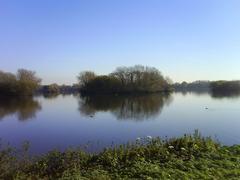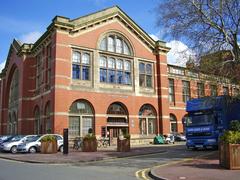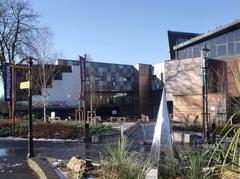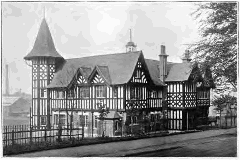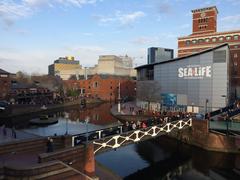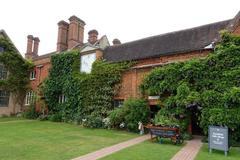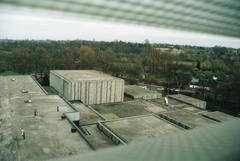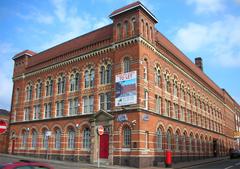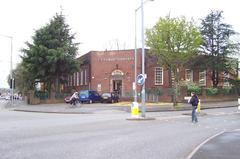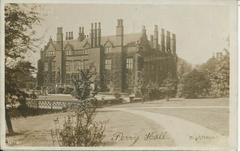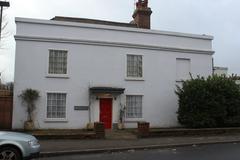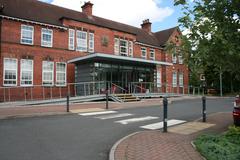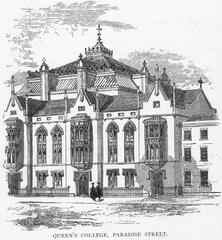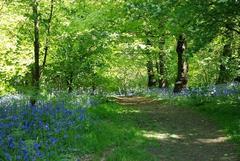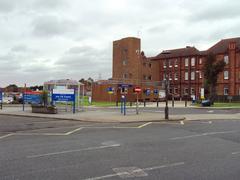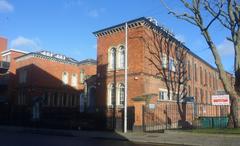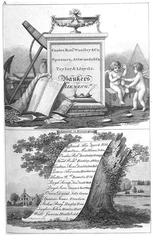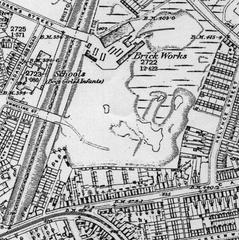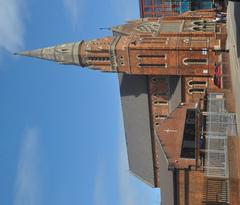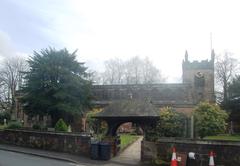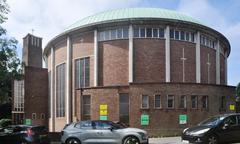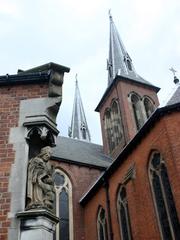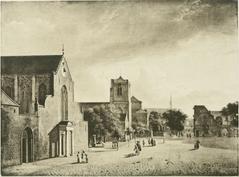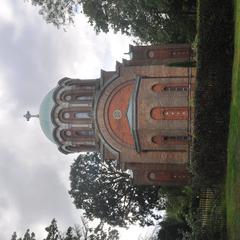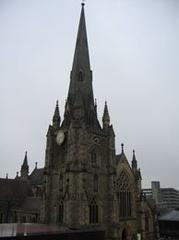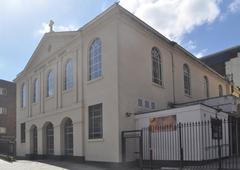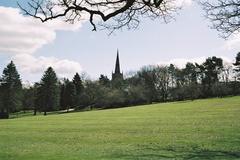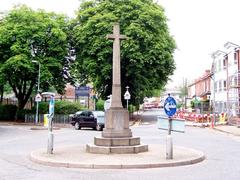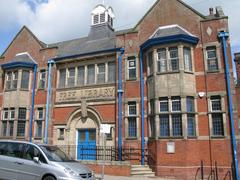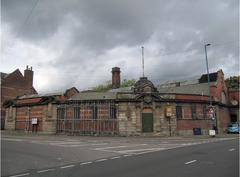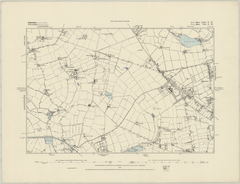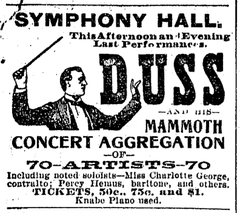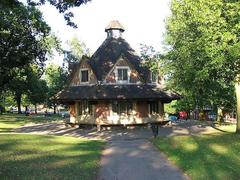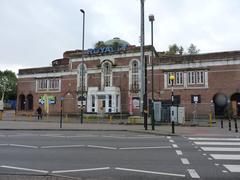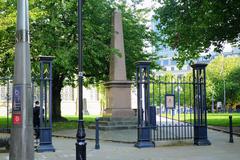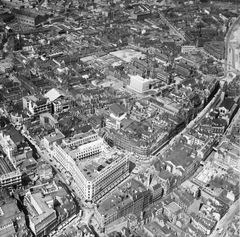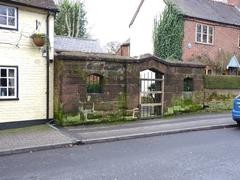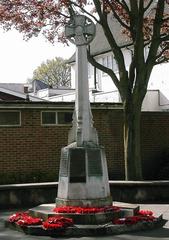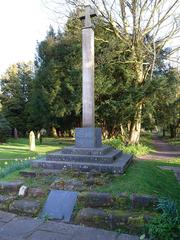Sheldon Hall Visiting Hours, Tickets, and Historical Sites in Birmingham: A Comprehensive Guide
Date: 03/07/2025
Introduction: Sheldon Hall’s Heritage and Significance
Sheldon Hall, located in the eastern suburbs of Birmingham, stands as a remarkable testament to England’s architectural and social history. With roots stretching back to the medieval era and mentions in the Domesday Book, the hall has evolved from a moated manor to a Grade II listed building, now serving as a vibrant restaurant and event venue. Its interiors showcase Tudor and Georgian features, offering visitors a unique blend of historical ambiance and contemporary hospitality. Whether you’re a history enthusiast, architecture admirer, or a casual visitor, Sheldon Hall provides a window into Birmingham’s layered past and a memorable experience for all.
For authoritative visitor information and heritage resources, consult the Stonehouse Restaurants Sheldon Hall page, Bill Dargue’s Place Names Gazetteer, and other local historical organizations.
Table of Contents
- Introduction: Heritage and Significance
- Medieval Origins and Development
- Architectural Evolution
- Social Context and Community Impact
- 20th-Century Changes and Urban Integration
- Visiting Sheldon Hall: Essential Information
- Preservation and Conservation
- Visitor FAQs
- Conclusion & Visitor Tips
- References & Further Reading
Medieval Origins and Development
Sheldon Hall’s origins are deeply rooted in the medieval landscape of Warwickshire. The area, first mentioned as “Machitone” in the Domesday Book, soon became known as “Mackadown” and by the 12th century, had developed into a significant moated manor at Gressel Lane in Tile Cross (Bill Dargue’s Place Names Gazetteer). Over the centuries, the manor passed through several prominent families—including the Despensers, Botillers, Throckmortons, and Digbys—each leaving their mark on the estate and local community.
Architectural Evolution
Sheldon Hall’s architecture reflects the stylistic changes of successive eras:
- Medieval and Tudor Origins: Initially a timber-framed, moated manor, the hall was rebuilt and expanded over centuries. By the 16th century, it featured classic Tudor elements, such as exposed beams and brickwork (UK Genealogy Archives).
- Georgian Refinements: The hall underwent significant 18th-century Georgian updates, including symmetry, red brick construction, sash windows, and a hipped roof characteristic of the period (Town & Village Guide).
- Adaptive Reuse: In the 20th century, Sheldon Hall transitioned into a farmhouse and later a public hospitality venue, carefully retaining its period features amidst modern adaptations.
Its Grade II listed status underscores its architectural and historic value (Bill Dargue’s Place Names Gazetteer), while nearby sites like St Giles’ Church and Old Rectory Farm further enrich the local heritage.
Social Context and Community Impact
Throughout its history, Sheldon Hall has anchored the rural community of Sheldon. The local economy was predominantly agrarian, and the hall’s owners played significant roles in education and philanthropy—most notably, the Digby family’s founding of a charity school in the 18th century. The hall’s status as a social and economic center persisted into the modern era, shaping the community’s identity.
20th-Century Changes and Urban Integration
The incorporation of Sheldon into Birmingham’s expanding suburbs during the 20th century marked a significant shift. Urban development replaced much of the surrounding farmland, and Sheldon Hall adapted to new uses, eventually becoming a restaurant and event venue. Despite these changes, the hall remains a tangible link to the district’s rural and aristocratic past.
Visiting Sheldon Hall: Essential Information
Visiting Hours and Tickets
- Restaurant & Pub Opening:
- Monday to Saturday: 12:00 pm – 11:00 pm
- Sunday: 12:00 pm – 10:30 pm
- Dining Service:
- Breakfast from 8:00 am on selected days (check ahead); lunch and dinner through late evening.
- Admission:
- Free entry. Reservations recommended for dining, especially on weekends and holidays.
- Guided tours are occasionally available during special events or by prior arrangement; contact the venue or check the official website for up-to-date details.
Accessibility
- Step-free access, accessible toilets, and designated parking spaces are available.
- Some areas may be less accessible due to the building’s historic structure; inquire ahead if you have specific needs.
Guided Tours & Special Events
- Guided tours are offered during heritage open days or by appointment, providing in-depth historical and architectural insights.
- Seasonal events, themed dinners, and community activities are held throughout the year—see the official website or local listings for upcoming dates.
Travel Tips
- Public Transport: Bus routes along Gressel Lane and the A45 connect Sheldon Hall with Birmingham city centre. Nearest train stations: Lea Hall, Marston Green, Stechford.
- Parking: On-site parking is available for guests.
- Nearby Amenities: Sheldon Country Park and local shops are within walking distance.
Dining Experience
- Managed by Stonehouse Restaurants, Sheldon Hall offers classic British fare, including carvery roasts, stone-baked pizzas, pub classics, vegetarian options, and daily specials.
- Family-friendly amenities: high chairs, children’s menus, and baby-changing facilities.
- Loyalty rewards via the Stonehouse app.
Private Events
- The hall is a popular venue for private celebrations, including birthdays, anniversaries, and small weddings.
- Group packages and tailored menus are available; contact the venue for details.
Nearby Attractions
- Sheldon Country Park: Over 300 acres of parkland with walking trails, a working farm, and plane-spotting opportunities.
- Blakesley Hall: An authentic Tudor house museum with gardens, located nearby.
- St Giles’ Church & Old Rectory Farm: Historical landmarks offering further insight into Sheldon’s past.
- Central Birmingham: Quick transport links to the city’s museums, shopping, and entertainment, including the Bullring, Birmingham Museum & Art Gallery, and the National SEA LIFE Centre.
- Regional Day Trips: Solihull, Warwick Castle, and the Black Country Living Museum.
For more ideas, see Tourist Places Guide.
Preservation and Conservation
Sheldon Hall’s Grade II listing ensures its continued preservation. Local heritage groups, such as the Birmingham Historical Society, advocate for ongoing conservation and community engagement. Challenges include maintenance costs and balancing modern usage with historical integrity, but adaptive reuse as a restaurant and event venue has helped secure its future.
Frequently Asked Questions (FAQs)
Q: What are Sheldon Hall’s visiting hours?
A: Monday–Saturday: 12:00 pm–11:00 pm; Sunday: 12:00 pm–10:30 pm. Breakfast is available from 8:00 am on selected days.
Q: Is there an admission fee?
A: No, entry is free. Reservations are recommended for dining.
Q: Are guided tours available?
A: Yes, during special events or by prior arrangement—contact the venue for details.
Q: Is Sheldon Hall accessible for visitors with disabilities?
A: The building is partially accessible. Step-free entry and accessible toilets are available, but some areas may have limited access.
Q: Can I take photographs?
A: Exterior photography is permitted. For interior photography, please ask staff for permission.
Q: Is parking available?
A: Yes, free on-site parking is provided for guests.
Conclusion & Visitor Tips
Sheldon Hall is a must-visit destination for those interested in Birmingham’s architectural and social heritage. Its blend of medieval and Tudor origins, Georgian elegance, and modern hospitality offers something for everyone. Enjoy a meal in historic surroundings, attend a special event, or use the hall as a base to explore the wider region’s attractions.
Plan your visit:
- Check the official website for current hours, menus, and event listings.
- Reserve ahead during weekends or for special events.
- Download the Stonehouse Rewards app for exclusive dining offers.
Enhance your experience:
- Explore nearby heritage sites and parks for a full day out.
- Respect the building’s historic features and inquire about photography.
- Support local preservation efforts by attending community events.
For ongoing updates, travel tips, and event news, download the Audiala app and follow us on social media.

